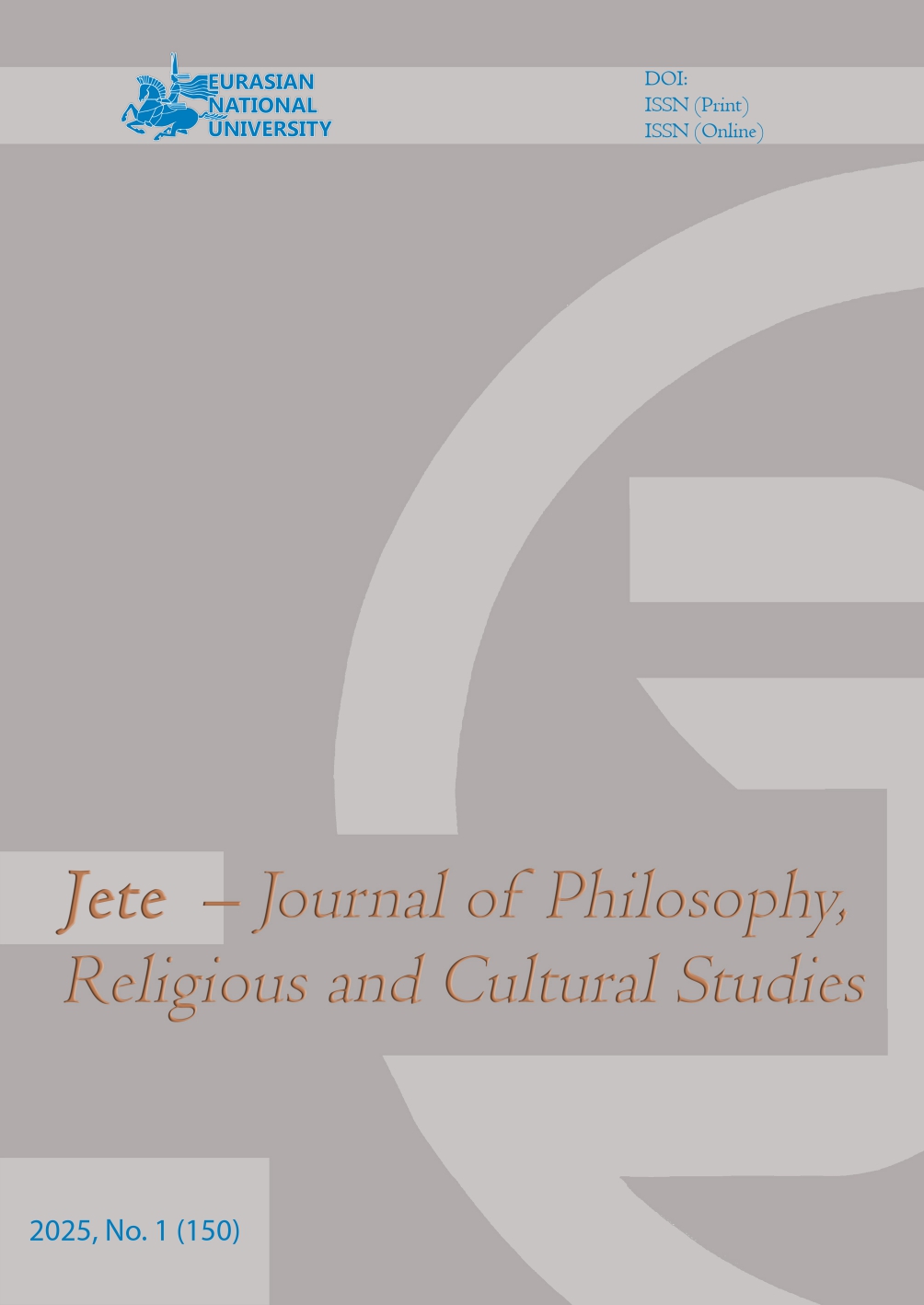Эмоцияларды реттеудегі діни механизмдер: исламдық тәжірибелер
Қаралымдар: 165 / PDF жүктеулері: 78Кілт сөздер:
Эмоцияларды реттеу; Исламдық механизмдер; Рухани жетілу; Құран аяттары; Сабыр мен шүкіршілік.Аңдатпа
Бұл зерттеуде эмоцияларды реттеудегі діни механизмдердің исламдық көзқарастағы орны мен маңыздылығы жан-жақты қарастырылады. Эмоцияларды басқару – адамның ішкі үйлесімділігі мен рухани жетілуінің негізгі құралы. Ислам ілімінде бұл үдеріс адамның жүрегін тыныштандыру, Аллаға сенім арту және өмірдің сынақтарына сабыр ету арқылы жүзеге асады. Құран Кәрімнің көптеген аяттарында адамның эмоцияларын реттеуде шүкіршілік, тәуекел, және сабыр сияқты құндылықтардың маңыздылығы ерекше аталып өтеді.
Ислам ғалымдары, оның ішінде Имам Аль Ғаззали өз еңбектерінде намаз, Құран оқу және дұға ету секілді ғибадаттардың эмоцияларды реттеудегі рөлін түсіндіріп, бұл тәжірибелердің адамның ішкі жан дүниесіне әсер ететінін нақтылап көрсеткен. Сондай-ақ, Имам Матуриди «Та’уилат әл-Құран» еңбегінде сенімнің адамның рухани күші мен психологиялық тұрақтылығына тигізетін оң ықпалын талдаған. Бұл тәжірибелер адамның мазасыздық пен күйзеліс деңгейін төмендетіп, оның Аллаға жақындауына және өмірлік қиындықтарға төзімділік танытуына септігін тигізеді.
Мақалада исламдық тәжірибелердің эмоцияларды реттеудегі рөлі жан-жақты талданып, олардың адамның рухани әлемі мен психологиялық жағдайын жақсартудағы орны айқындалады. Сонымен қатар, бұл механизмдердің қазіргі психологиялық теориялармен үйлесімділігі талқыланып, исламдық тәсілдердің заманауи эмоциялық қиындықтарды шешудегі маңыздылығы мен тиімділігіне назар аударылады. Бұл зерттеу эмоцияларды басқаруда исламның ұсынған жүйесінің әмбебап әрі қазіргі заманға бейімделген шешімдер ұсына алатынын дәлелдейді.








